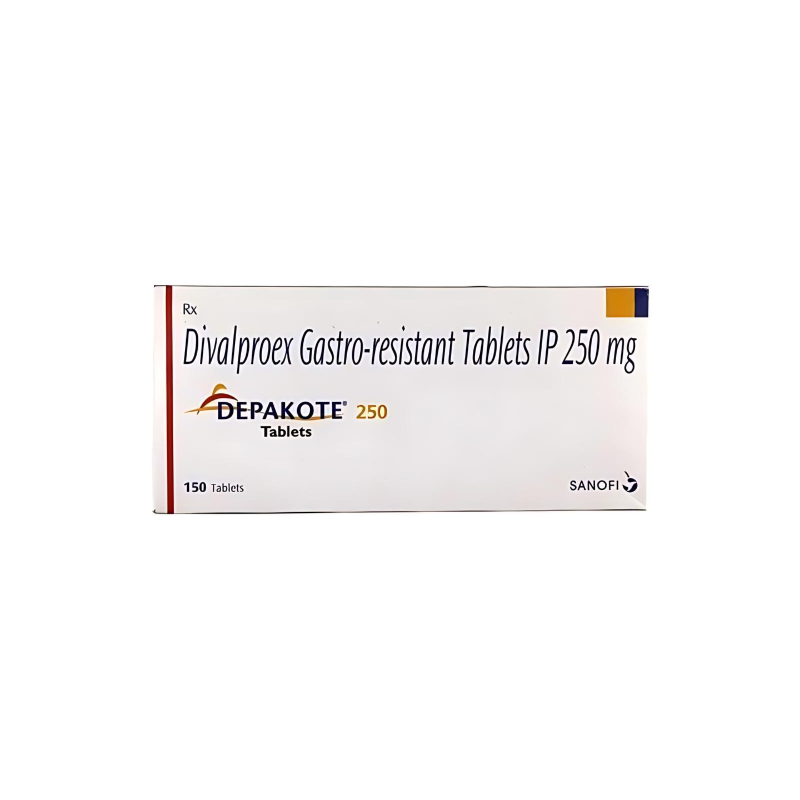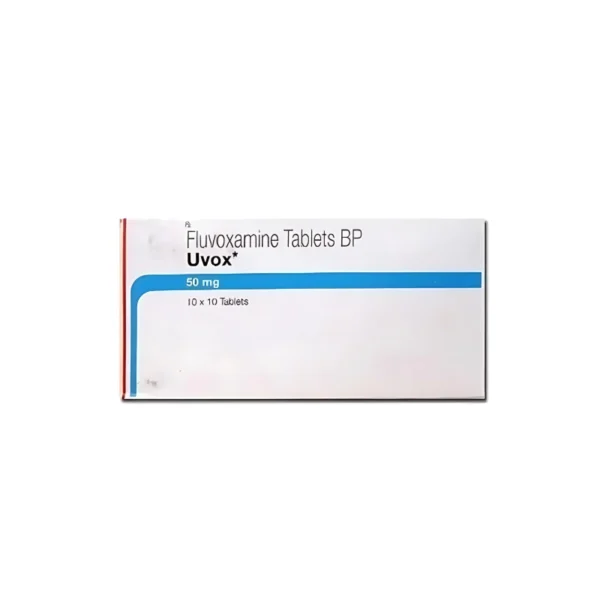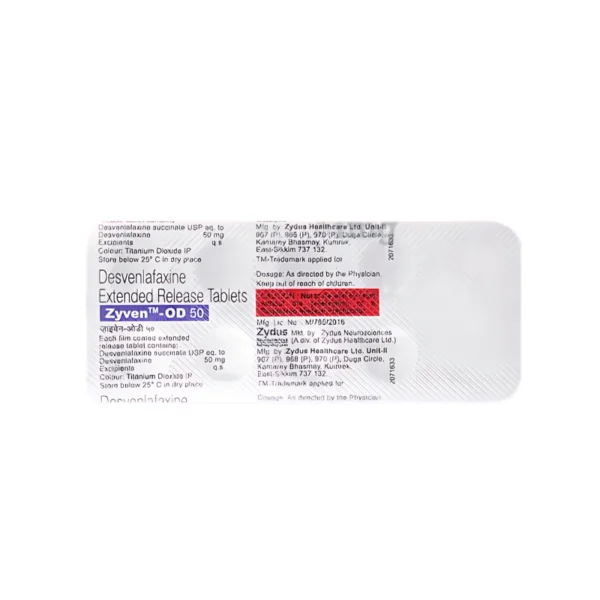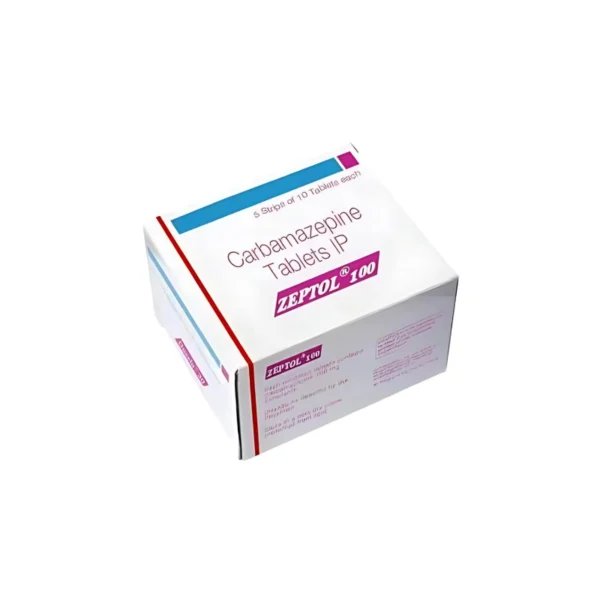FLAT 10% OFF ON YOUR FIRST ORDER. USE IVER10
Depakote Tablet (Divalproex)
Price range: $35.00 through $112.00
Depakote Tablet contains divalproex sodium, an anticonvulsant and mood stabilizer used to treat epilepsy, bipolar disorder, migraines, and trigeminal neuralgia. It works by balancing brain chemicals and calming abnormal electrical activity, reducing seizures, mood swings, and migraine frequency. Patients typically notice improvement within 2-4 weeks, but consistent use and regular doctor monitoring are essential for safety. Common side effects include nausea, dizziness, and weight gain.
- Buy 2 and get Flat 15% Off. Use B2SAVE15
- Buy 3 and get Flat 20% Off. Use B3SAVE20
Depakote Tablet (Divalproex Sodium) – Treatment for Epilepsy, Bipolar Disorder & Migraines
Depakote Tablet is an anticonvulsant and mood stabilizer used to treat epilepsy, bipolar disorder, migraines, and trigeminal neuralgia. By stabilizing electrical activity in the brain, it helps control seizures, prevents manic episodes, and reduces migraine frequency. Take it consistently at the same time daily, with or without food. Improvement may take 2-4 weeks. Do not stop suddenly—gradual dose reduction under medical supervision is required to avoid worsening symptoms. Common side effects include nausea, dizziness, and weight gain. Regular blood tests are recommended to monitor liver function and drug levels. Contraindicated in severe liver disease and pregnancy due to potential risks.
Uses of Depakote Tablet:
- Treatment of epilepsy and seizures
- Bipolar disorder (mania prevention)
- Migraine prophylaxis
- Trigeminal neuralgia
Benefits of Depakote Tablet:
It stabilizes mood swings in bipolar disorder and reduces seizure frequency by balancing brain chemicals. For migraines, it decreases both severity and occurrence. Long-term use helps maintain symptom control, though regular monitoring is essential. Patients often report improved daily functioning and reduced emotional extremes.
Side Effects of Depakote Tablet:
Common side effects (usually temporary):
- Nausea, vomiting, abdominal pain
- Dizziness, drowsiness
- Weight gain, increased appetite
- Hair loss (temporary)
- Tremors, blurred vision
Serious but rare:
- Liver damage (symptoms: yellow skin, dark urine)
- Pancreatitis (severe stomach pain)
- Suicidal thoughts
- Low platelet count (unusual bruising/bleeding)
How to Use Depakote Tablet?
Swallow the tablet whole with water, at the same time daily (with or without food). Do not crush or chew. Dose adjustments should only be made by your doctor. Regular blood tests are required to monitor therapy.
How Depakote Tablet Works?
Depakote contains divalproex sodium, which increases GABA (a calming neurotransmitter) and blocks voltage-sensitive sodium channels in the brain. This dual action stabilizes abnormal electrical activity, preventing seizures, mood swings, and migraines.
Safety Advice:
- Alcohol: Unsafe—increases drowsiness and seizure risk.
- Pregnancy: Avoid—high risk of birth defects.
- Breastfeeding: Not recommended—passes into breast milk.
- Driving: Unsafe—may cause drowsiness or dizziness.
- Liver Disease: Contraindicated—can cause severe liver damage.
- Kidney Disease: Safe with dose adjustments if needed.
What If You Missed a Dose?
Take it as soon as you remember. If it’s almost time for the next dose, skip the missed one. Never double the dose to compensate.
FAQs:
Q1: Can I stop Depakote suddenly?
No—sudden discontinuation may trigger seizures or rebound symptoms. Taper off gradually under medical supervision.
Q2: Does Depakote cause weight gain?
Yes, due to increased appetite. Monitor diet/exercise and discuss strategies with your doctor if concerned.
Q3: Is Depakote safe for long-term use?
Yes, but requires regular monitoring (liver function tests, blood counts) due to potential organ toxicity.
Q4: Can Depakote treat acute migraines?
No—it’s for prevention only. Take daily to reduce migraine frequency/severity.
Q5: Why are blood tests needed?
To monitor liver function, platelet counts, and drug levels—ensuring safety and optimal dosing.
Q6: Will hair loss from Depakote grow back?
Usually yes—hair typically regrows after adjusting the dose or stopping treatment.
Q7: Can I take painkillers with Depakote?
Consult your doctor first—some (e.g., aspirin) may increase bleeding risk.
Q8: How quickly does Depakote work for bipolar disorder?
Mood stabilization may take 1-2 weeks, with full effects in 4-6 weeks.
| Strength | 250 mg |
|---|---|
| Pack Size | 30 Tablets, 60 Tablets, 90 Tablets |










Reviews
There are no reviews yet.